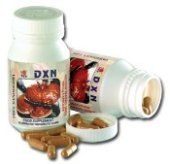Facts About Vitamin C
Info on Its Importance to Your Health
According to facts about vitamin C, its scientific or medical term is ascorbate or ascorbic acid. It is water-soluble thus it is impossible for your body to store. One of the fascinating facts on vitamin C is most mammals and animals can make this inside their bodies but the human body cannot.
Yes, your body does not have the capability to make its own ascorbic acid. But you - especially your immune system - need it to be healthy. If you don't get enough of it, you are in danger of getting the disease known as scurvy. You must have your daily supply and you can get it through your diet. But if your diet lacks this, then you need to take supplements.

What is the importance of Vitamin C?
Facts about vitamin C tell us that it's important because it performs numerous essential functions such as the formation of . . .
- carnitine - a tiny molecule that helps move fat into your cells, which, in turn, convert fat into energy;
- collagen - an essential protein used to produce skin, bones, ligaments, tendons, and blood vessels, and
- norepinephrine - a neurotransmitter that plays a crucial role to proper functioning of your brain. It has also an effect on your mood.
Many studies and facts about vitamin C show that it plays an important role in the metabolism of cholesterol into bile acids.
Habits such as smoking and any form of trauma or injury can use up large quantities of ascorbic acid in the human body. That's why you have to take it in daily.
To learn what it does to your immune system, click to read the Health Benefits of Vitamin C.
How much vitamin C do you need?

The amount you need differs from your husband's or your child's. Required amount depends on your age and health condition.
There has been debate on how much the human body has to take daily to be healthy. But facts from the medical community show that experts generally agree that a balanced diet has adequate ascorbic acid to protect you from scurvy and to make you healthy.
The key here is a healthy diet. However, you need to take supplements if you. . .
- consume unhealthy foods most of the time, or
- are pregnant, or
- smoke, or
- are under stress.
According to facts from the North American Dietary Reference Intake, the recommended daily minimum intake is 90mg and maximum of 2,000mg. But facts from the United Kingdom's Food Standards Agency set it at 75mg daily while it's 45mg per day for the World Health Organization.
Some also advocate taking it in excess especially if you are sick. However, your body does not have the ability to absorb too much vitamin C.
According to facts about vitamin C, your body absorbs 70 to 95% with consistent intake. But here's another one of the interesting facts: the rate your body absorbs it decreases as intake increases.
If you take in 12g, your body absorbs ascorbic acid by 16%; if you take less than 20 mg, the degree of absorption can go up to 98%. Also, large amount of sugar either in the intestines or in the blood can affect absorption.
What happens if you take in too much of ascorbic acid? Since your body can't absorb it, the excess is excreted by your body through the urine.
Where can you get your vitamin C?
The best and richest vitamin C food sources are the different kinds of fruits and vegetables. Ascorbic acid is sensitive to heat. According to facts, cooking can decrease the ascorbic acid content of vegetables by as much as 60%. So it's best that you eat foods with vitamin C such as vegetables either raw or lightly cooked. Fruits should be eaten fresh rather than dried as much as you can to get the most of their vitamin content according to facts about vitamin C.
What would you like to read next?
Other Immune System Supplements
Ganoderma Extract - Reishi Mushroom Benefits
What is Ganoderma Extract, the Red Mushroom
Spirulina Facts
Spirulina Health Benefits
Positive Spirulina Side Effects
Other Immune System Boosters:
How to Boost the Immune System
Detox the Body to Build Up Your Immune System
Return from Facts About Vitamin C to Immune System Supplements
Return from Importance of Vitamin C to Cancer Prevention Home
Looking for something? Use Google Search box to find it! |
 Ganoderma Extract Supplements |


